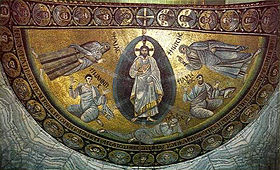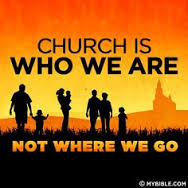First Reading: Genesis 12:1-4
Psalm: Psalm 33
Second Reading: Second Timothy 1:8-10
Gospel: Matthew 17: 1-9
We all want to belong. We all want to feel like we fit in, that we have a place in our family, community, work, or church. This desire seems palpable these days because so many forces tell us we don’t belong, we don’t matter. More and more, we live in a gig economy where are jobs are extremely precarious and the company commits very little to us. Our cities and neighborhoods are increasingly stratified by location and class. The ongoing revelations of the #metoo movement – seen recently in the conviction of Harvey Weinstein and in the retirement of Chris Matthews – shows how often women are not “in” the group. One effect of the coronavirus is that it reveals the pervasiveness of racism and how such prejudice is used to make people feel like they don’t belong. In Appalachia, so many people feel lost that we have one of the highest rates of deaths of despair.
These forces working against our sense of belonging our troubling because, as the psalm this week indicates, the desire for belonging is good. In fact, its root is in our desire to be with God.
Our soul waits for the LORD,
who is our help and our shield.
May your kindness, O LORD, be upon us
who have put our hope in you.
The first reading and the gospel seem to offer an image of how God responds to our need for belonging. With Abraham, God calls out from the heavens and marks Abraham as special in salvation history, becoming father of the nations and a blessing to the world. With Jesus, Moses and Elijah visit him and God calls Jesus beloved. This would be nice: hearing God’s voice from the heavens saying we are special.
These spotlight moments are a bit misleading though.
To begin, belonging to God often comes with suffering. As Paul writes to Timothy, “Bear your share of hardship for the gospel with the strength that comes from God.” This is clear with Abraham. After God’s proclamation, Abraham had to leave his homeland, the land of his family. This is also clear with Jesus. After Jesus “was transfigured before them” and “his face shone like the sun and his clothes became white as light,” Jesus went off to prepare for his coming death.
Yet, suffering is not the meaning of belonging. It is usually the result of it. Belonging to God means that one does what God tells us to do: feed the hungry, shelter the homeless, welcome the stranger, visit the imprisoned, forgive as we are forgiven, and seek justice for the poor. It is these concrete acts of love and those like them that Jesus calls us to that often result in suffering.
Even here though, concrete acts of love are not how we belong. We do not earn our way into friendship with God. Instead, we belong to God because God loves us. He sends Abraham to be a blessing for the world. God’s kindness fills the earth, the psalmist proclaims. Paul says that God has saved us “not according to our works but according to his own design and the grace bestowed on us in Christ Jesus before time began.”
We belong because God loves us. God wants us at the heavenly wedding banquet. God sends Abraham, Isaac, Jacob and Moses to tell us this. God sends prophets to remind us of this. God becomes human, giving up power and knowledge, becoming fragile and vulnerable to show us this. Like a mother who cannot forget her child or who cannot be without tenderness (Isaiah 49:15), God loves us. God wants us to know that we belong.
Because of this love of God poured forth into our hearts, we should know we belong. The suffering and concrete acts of love are manifestations of being loved. Perhaps this is part of Jesus’ transfiguration: knowing that, despite the coming betrayals and crucifixion, he is beloved by God. Perhaps too, we are called to our own transfiguration, accepting the revelation that we are beloved children of God.
If we do, if we know we belong, we will go out and love others the way we are loved. We will encounter all the forces that tells us we don’t belong and that tell our friends, family, neighbors, strangers, and enemies that they don’t belong. And, we must remind them, as we ourselves must be reminded, that they do matter, that they are important, that they are beloved children of God.



